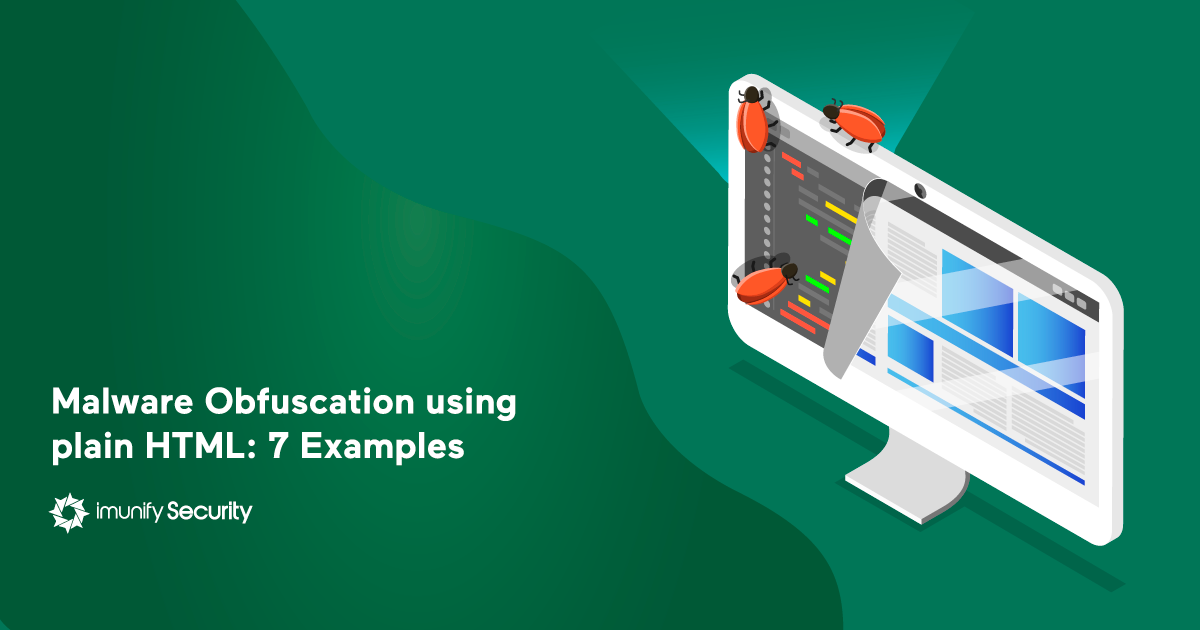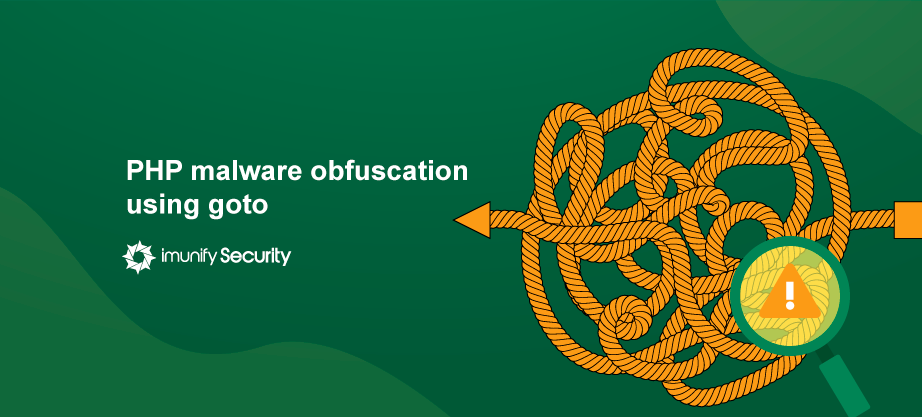.png)
The popularity of WordPress makes it a prime target for hackers. In one of our regular investigations, we recently encountered a particular strain of malware that targeted it. Here’s an analysis of that malware that we’d like to pass on to sysadmins.

Hackers will use any method they can to infect your server.
Just because a web site is using plain HTML, doesn’t mean it’s safer than one built on PHP. In this article are seven common examples of obfuscated malware and their de-obfuscated equivalents. To complement my article on PHP malware obfuscation (php goto), this article will look at obfuscation using plain HTML and JavaScript. Additionally, read our website hosting security article and learn how to keep your website secure in 2021.

Imunify’s Malware Intelligence Team has been witnessing an increase in malware samples using the goto programming construct. Here’s a chart showing the recent surge of malware using goto as an obfuscating mechanism.

There’s a dangerous new malware affecting Linux and IoT devices known as HiddenWasp. In this article, I’ll dissect it to show you how it works and how you can stop it infecting your Linux server or IoT device.
 Thousands of websites get hacked on a daily basis. Actually, thousands out of the many billions of websites on the Internet is quite a low percentage, but if you got unlucky and your website is among those, you need to take it
Thousands of websites get hacked on a daily basis. Actually, thousands out of the many billions of websites on the Internet is quite a low percentage, but if you got unlucky and your website is among those, you need to take it Unfortunately, very often, website owners are 100% sure that they won't ever be a
In this article, I cover that gap and offer you a solid disaster recovery plan if your website got hacked. Additionally, read our website hosting security article and learn how to keep your website secure in 2021.

.png?width=115&height=115&name=pci-dss%20(1).png)
